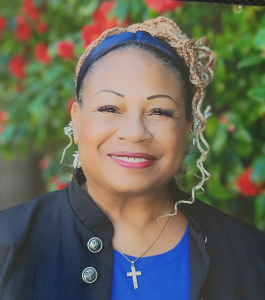Black History Month | Faculty Spotlight Debby Flickinger
Black History Month is celebrated every February as a time to commemorate and acknowledge the Black Americans who played a critical role in the founding and shaping of the United States.
Union Institute & University is participating in the celebration by spotlighting members of our faculty and staff.
Faculty spotlight | Debby Flickinger 
Tell us about your role at Union.
I have been at Union Institute & University for just over four years. During that time, I served as an Affiliate Faculty within the Humanities and Culture concentration in the Interdisciplinary Studies Ph.D. program. I have taught classes that engage students in Education, Social Justice, Engaging Difference, and Sustainability. My current role as the Ph.D. Enrollment and Engagement Specialist is focused on guiding new and returning students through the application and enrollment processes.
Tell us about a moment in Black History that influenced or shaped your career/life.
In my life, there have been so many moments that, as a Black woman, have influenced and shaped my life. Every day, as Black people we are faced with the latest news of despair. These incidents continue to shape me through resilience and caring. Today, I am more motivated to create change through teaching courses on Social Justice, presenting webinars, coffee chats, as well as presentations.
Is there a Black leader, past or present, who inspires you, and why?
We must remember that we stand on the shoulders of the many who have gone before us. In my lifetime there has been more than I can count. If I had to choose one, I cannot do it. I will share that I met Shirley Chisolm, the first Black woman to run for President in 1971 when I was working on Barbara Lee’s campaign which had an enormous impact on the work that I do today.
What advice do you have for people looking to start their careers or become a leader?
In order to think about social justice in the future, there must be careful consideration of the issues that our society is dealing with today. Communities must have the courage to meet each other where they are at this moment. There must be an element of social justice in all that is taught; in all that is learned; and in all that is done.